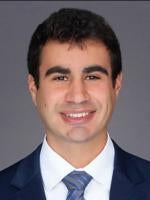In Voice Tech Corp., v. Unified Patents, LLC 2022-2163 (Fed Cir. August 1, 2024), the case addresses whether failure to re-raise arguments in a request for rehearing before the Patent Trial and Appeals Board (“PTAB”) forfeits such arguments on appeal to the Federal Circuit. This case also addresses what an appellant must show to have claim construction arguments considered on the merits on appeal.
Background
Unified Patents, LLC (“Unified”) petitioned the PTAB for inter partes review (IPR) of claims 1-8 of U.S. Patent No. 10,491,679 (“the ‘679 patent”), owned by Voice Tech Corp. (“Voice Tech”).
The PTAB instituted review and found all claims of the ‘679 patent unpatentable under 35 U.S.C. § 103.
Voice Tech filed a request for rehearing to the PTAB. The rehearing request did not re-raise Voice Tech’s claim construction arguments from the IPR. Despite Voice Tech’s rehearing request, the PTAB maintained its finding that all claims of the ‘679 patent were unpatentable under 35 U.S.C. § 103.
Voice Tech appeals, including on the issue of claim construction.
Issue
- Are Voice Tech’s claim construction arguments forfeited on appeal because they were not re-raised in Voice Tech’s rehearing request?
- Assuming Voice Tech’s claim construction arguments are not forfeited, should the Federal Circuit consider them on the merits?
Holding
- Voice Tech’s claim construction arguments are not forfeited on appeal even though they were not re-raised in Voice Tech’s rehearing request. Namely, “a party’s choice to not re-raise an argument in the party’s request for rehearing in a request for re-hearing to the [PTAB] does not, in and of itself, forfeit the argument for review by [the Federal Circuit].”
- Voice Tech’s claim construction arguments cannot be considered by the Federal Circuit on the merits because Voice Tech failed to explain how a different claim construction would impact the PTAB’s ultimate conclusion that the claims of the ‘679 were unpatentable under 35 U.S.C. § 103.
Reasoning
1. 37 C.F.R. § 42.71(d) states “[a] party dissatisfied with a [PTAB] decision may file a single request for rehearing” and the “request must specifically identify all matters the party believes the [PTAB] misapprehended or overlooked.” (emphasis added).
Under this regulation, the Federal Circuit reasoned that: “the language in the regulation specifying that a party identify only matters it believed the Board ‘misapprehended or overlooked’ is narrower in scope than the set of all matters in a Board’s final decision that a party may disagree with… [Moreover] it would make little sense to find all issues preserved for appeal if a party declined to request rehearing, but to find certain issues forfeited if the party exercised its option to request rehearing on the subset of issues it believed the Board to have misapprehended or overlooked…” (emphasis added).
In the present case, the Federal Circuit found that Voice Tech’s claim construction arguments were “fully considered by the [PTAB] in the underlying proceedings” – and were thus not matters that were “misapprehended or overlooked” in the underlying proceedings. Accordingly, based on the reasoning above, the Federal Circuit found that Voice Tech had not forfeited its claim construction arguments on appeal despite not re-raising them in its rehearing request.
The Federal Circuit also distinguished the present case from Polycom, Inc. v. Fullview, Inc., 767 F. App’x 970 (Fed. Cir. 2019). In Polycom, the Federal Circuit found that appellant waived an anticipation argument by failing to raise it in a rehearing request before the PTAB. However, in Polycom, and unlike in the present case, the waived anticipation argument had not been raised in the underlying proceeding (i.e., before the rehearing request). Thus, the waived anticipation argument in Polycom was a “misapprehended or overlooked” matter which needed to be identified in a rehearing request in order to be preserved for appeal.
2. Claim construction at the Federal Circuit is not required “where the construction is not ‘material to the [obviousness] dispute.’” Nidec Motor Corp. v. Zhongshan Broad Ocean Motor Co., 868 F.3d 1013, 1017 (Fed. Cir. 2017) (quoting Vivid Techs., Inc. v. Am. Sci. & Eng’g, Inc., 200 F.3d 795, 803 (Fed. Cir. 1999)).
Here, the Federal Circuit found that “Voice Tech stops short of explaining why its proposed construction would change the [PTAB]’s obviousness findings, instead asserting only that ‘[t]his term must be defined in order to properly evaluate the obviousness challenges to claims 5 and 7.’” Accordingly, “[b]ecause Voice Tech has not shown any prejudice resulting from the [PTAB]’s constructions of [the claim limitations in dispute],” the Federal Circuit declined to consider Voice Tech’s claim construction arguments on the merits.



 />i
/>i

